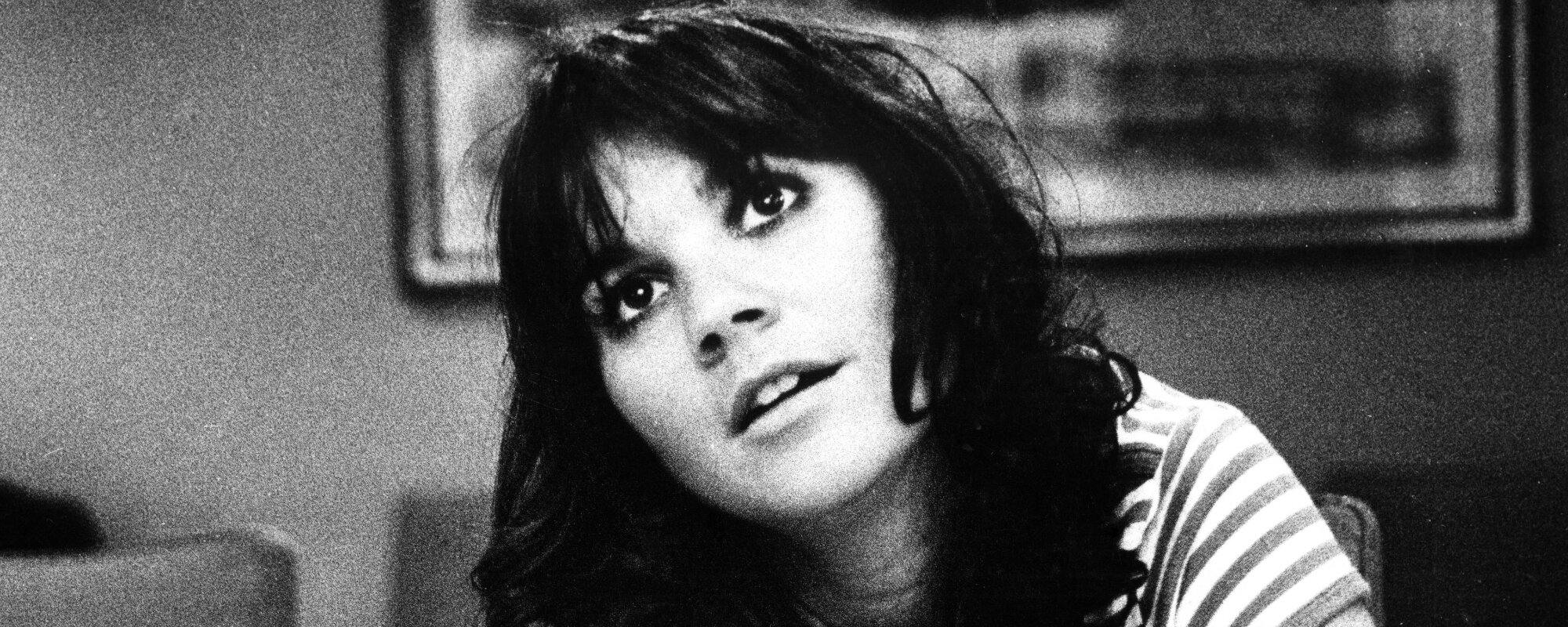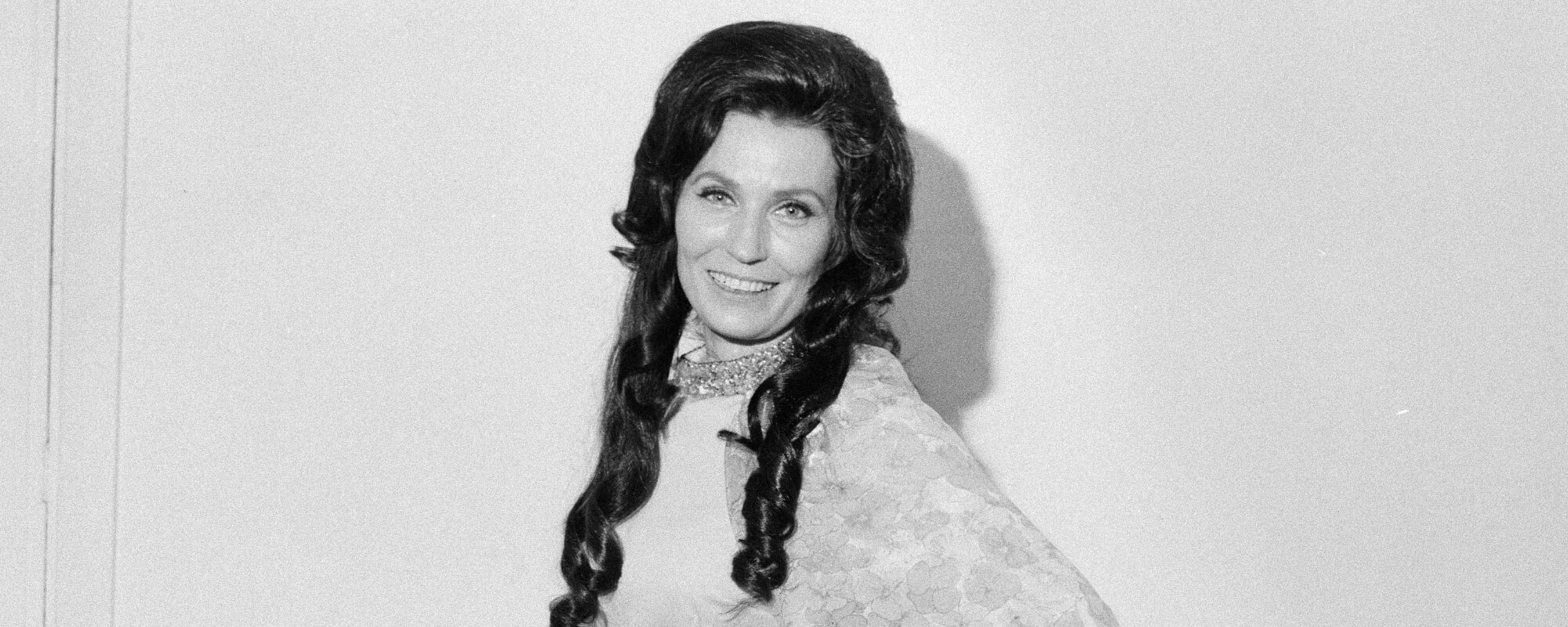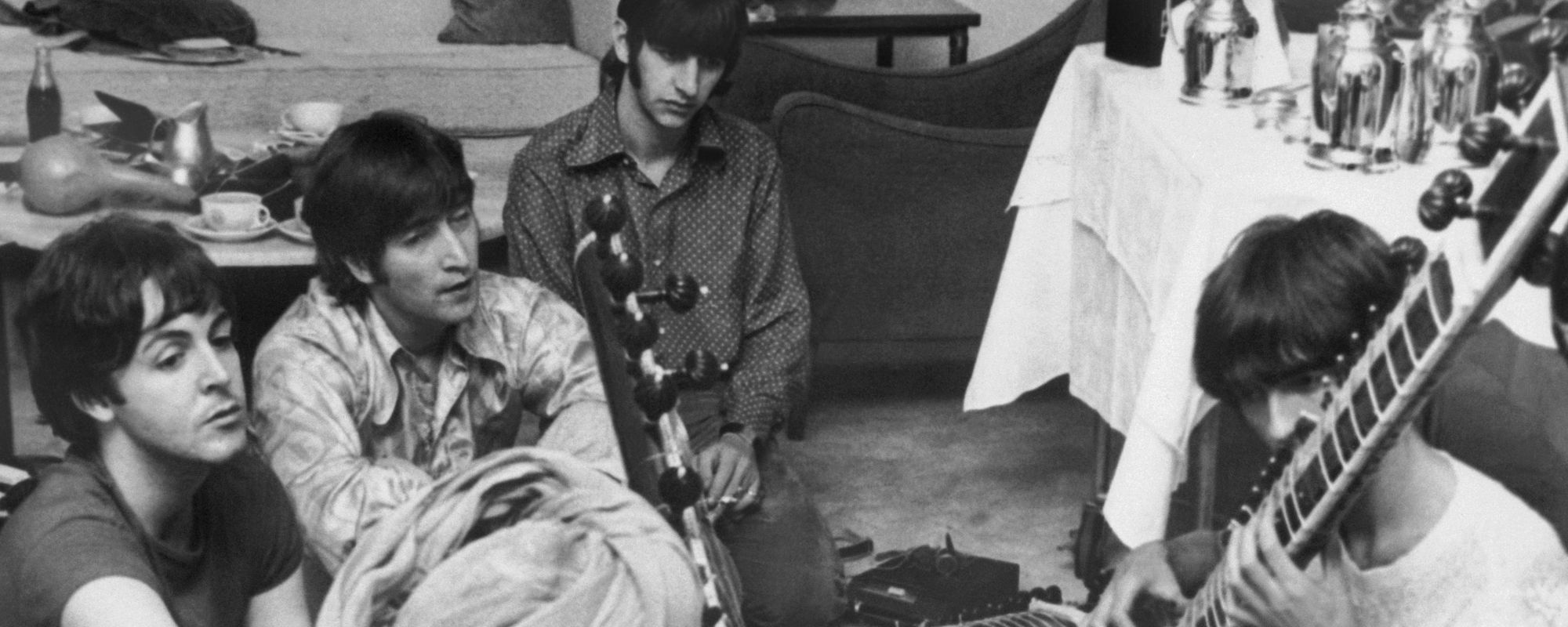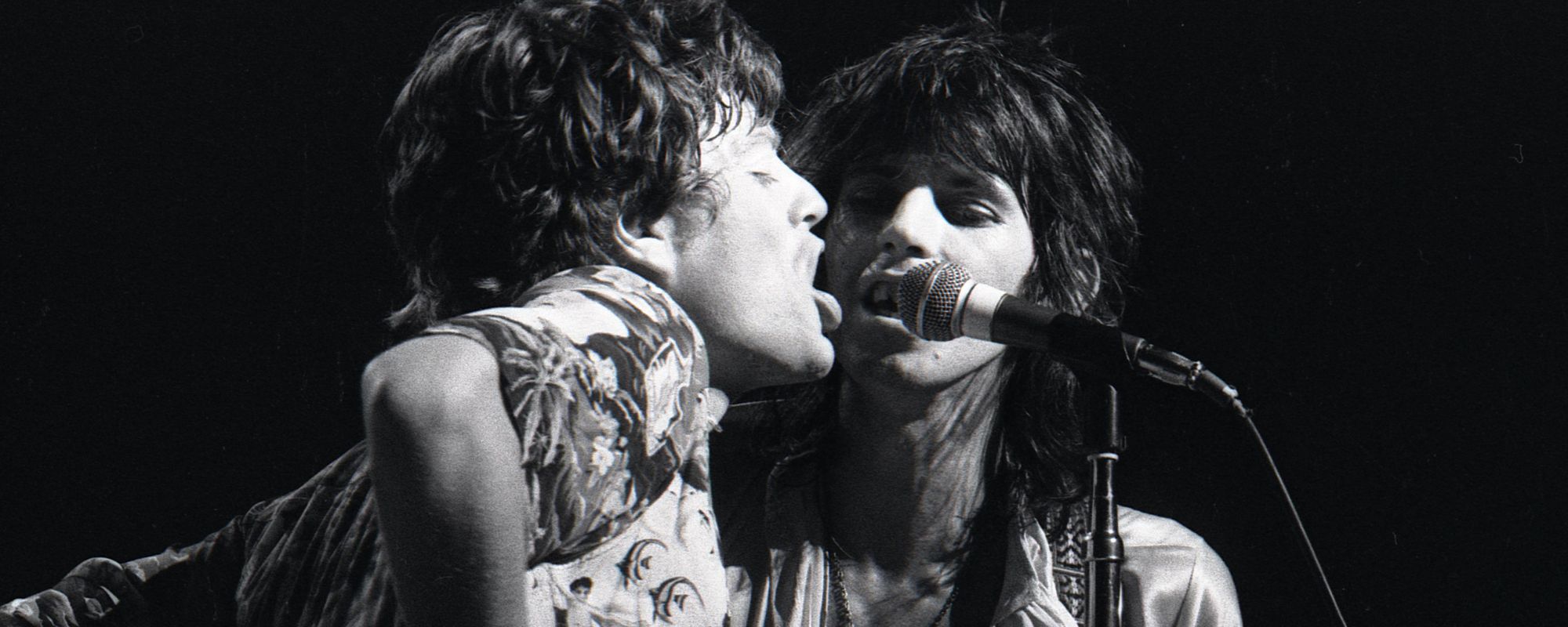As astronomically successful and unique as John Lennon’s short life was, tragedy and hardship punctuated his 40 short years, from the death of his mother on July 15, 1958, to his own fateful end in December 1980. The latter event would impact the entire world, not to mention his former bandmates. But the former tragedy was equally influential, deeply affecting Lennon, his band, and the music they created.
Videos by American Songwriter
Without Julia Lennon, John might not have grown into a musician. Perhaps he would have settled for a blue-collar job or the bohemian life of a visual artist. Fortunately for John (and the rest of the world), Julia happily passed down her love of music to her son.
An Artistic, Comedic, Beautiful Force of Nature
Considering her son’s global cultural influence, it should come as no surprise that Julia Lennon (née Stanley) was as every bit as charismatic, daring, and rebellious as her son, John Lennon, would come to be. If there were ever a problem child in the Stanley family, they would likely give Julia the title. She danced, sang, joked, and played instruments without any care for lady-likeness or societal (and familial) expectations that might be looming over her.
Julia married Alf Lennon in 1938, much to the chagrin of her family, who didn’t believe the Merchant Navy steward had the proper means to support the family. Nevertheless, the marriage persisted, and eventually, Julia and Alf became pregnant with their first and only son, John Lennon. Alf and Julia’s marriage fell apart shortly thereafter, and John’s life didn’t get much easier after that. Julia’s sister, Mimi Smith, insisted that John live with her instead of Julia. Various accounts dispute the reasoning behind this arrangement, but it went into effect nonetheless. John moved into a small bedroom in his aunt’s house in 1945.
But Julia was still a present force in John’s life. She visited his son frequently, gifted him his first guitar, and let him listen to records at her house so he could learn Elvis Presley and other early rock ‘n’ roll songs by ear. When John began playing out at local clubs, she would attend, often being the loudest one in the crowd. Despite the faults her family might have attributed to her, she was a clear artistic influence in John’s life.
John Lennon’s Mother Meets Tragic End In July 1958
On July 15, 1958, Julia Lennon was making one of her usual visits to the Smith household to catch up with her sister, Mimi Smith, and see her son, John Lennon. John was away, so Julia caught up with her sister for a while when they noticed one of John’s friends, Nigel Walley, approaching the house. The women told Nigel that John wasn’t home, and Julia joked that he had the “privilege of escorting me to the bus stop.” Walley recalled, “I said, ‘That will do me fine.’”
As Walley walked away from Julia, he heard a loud thud and turned to see her flying through the air. An off-duty policeman had struck Julia in the street, killing her instantly. The court acquitted the policeman, Eric Clague, of all charges after he testified that he wasn’t drunk or speeding. It was merely a tragic accident. Clague later quit the force and became a mailman, which led him to deliver countless letters to Paul McCartney’s home after the Beatles made it big. Clague had since learned that John Lennon, one of the Fab Four, was the son of the young woman he had killed in 1958.
The death of Julia Lennon had an immeasurable effect on the Beatles’ musical legacy, and not just for the songs John wrote in memory of his mother, like “Julia.” McCartney and John were able to bond over the deaths of their mothers at a young age, drawing them closer personally and creatively. From a strictly creative standpoint, Julia is a big reason John picked up the guitar at all. She might not have been there to see the Beatles climb to the ranks of stardom, but she was certainly there to start them on their journey.
Photo by Jeff Hochberg/Getty Images









Leave a Reply
Only members can comment. Become a member. Already a member? Log in.